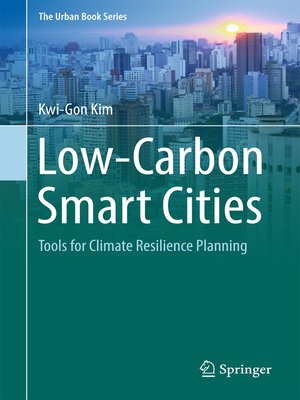
Sign up to save your library
With an OverDrive account, you can save your favorite libraries for at-a-glance information about availability. Find out more about OverDrive accounts.
Find this title in Libby, the library reading app by OverDrive.



Search for a digital library with this title
Title found at these libraries:
| Library Name | Distance |
|---|---|
| Loading... |
This book aims to integrate climate mitigation and adaptation tools into conventional urban planning. It emphasizes the value and importance of ICT as connected technology. The author believes that ICT and IOT can facilitate controlling climate change attributes when deployed with appropriate ingredients and composition in cities in an integrated comprehensive manner. It was written with the author's firm belief that cities play an important role in mitigating climate change by reducing energy consumption, promoting the use of renewable energy sources, or by trading emission permits and selling Certified Emission Rights (CERs). This book looks at green growth based on the circular economy using green smart technology as a sustainable tool for green economic development. Also for climate change adaptation, cities have to take actions to reduce the adverse impacts of climate change on people, property and ecosystems in the urban planning process.
It has been written with the author's works for Urban Environment Accords (UEA) and International Urban Training Center (IUTC) in collaboration with UNEP, World Bank, UNFCCC and UN-HABITAT. It can be used as a training source book for city climate planners and urban practitioners of local governments. It will be utilized as a more practical guidebook for climate change policy makers as well as a futuristic research agenda for next generations.
It has been written with the author's works for Urban Environment Accords (UEA) and International Urban Training Center (IUTC) in collaboration with UNEP, World Bank, UNFCCC and UN-HABITAT. It can be used as a training source book for city climate planners and urban practitioners of local governments. It will be utilized as a more practical guidebook for climate change policy makers as well as a futuristic research agenda for next generations.







